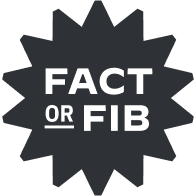What did the first vending machine sell?
Tuesday, June 11, 2024
 Make every day more interesting. Each day a surprising fact opens a world of fascinating information for you to explore. Did you know that….?
Make every day more interesting. Each day a surprising fact opens a world of fascinating information for you to explore. Did you know that….? 









| | Original photo by Andrey Rykov/iStock |
| The world's first vending machine dispensed holy water. | Democracy, theater, olive oil, and other bedrocks of Western civilization all got their start with the Greeks. But even some things that might seem like squarely modern inventions have Hellenistic roots, including the humble vending machine. In the first century CE, Greek engineer and mathematician Heron of Alexandria published a two-volume treatise on mechanics called Pneumatica. Within its pages were multiple mechanical devices capable of all types of wonders: a never-ending wine cup, rudimentary automatic doors, singing mechanical birds, various automata, the world's first steam engine, and a coin-operated vending machine.
Heron's invention wasn't made with Funyuns and Coca-Cola in mind, though: It dispensed holy water. In Heron's time, Alexandria was a province of the Greek empire and home to a cornucopia of religions with Roman, Greek, and Egyptian influences. To stand out, many temples hired Heron to supply mechanical miracles meant to encourage faith in believers. Some of these temples also had holy water, and experts believe Heron's vending machine was invented to moderate acolytes who took too much of it. The mechanism was simple enough: When a coin was inserted in the machine, it weighed down a balancing arm, which in turn pulled a string opening a plug on a container of liquid. Once the coin dropped off the arm, the liquid stopped flowing. It would be 1,800 years before modern vending machines began to take shape — many of them using the same principles as Heron's miraculous holy water dispenser.
|
|
 | | France has vending machines for baguettes. | | |
|
|
| France has vending machines for baguettes. |  |  |
|
|
|
|
|
| __ has the highest concentration of vending machines per capita. |  |
|
|
 | Numbers Don't Lie |
|
 | | Estimated number of vending machines in the U.S. | | 5 million |
|
|  | | Year William Henry Fruen patented the "Automatic Liquid-Drawing Device," the first U.S. vending machine | | 1884 |
|
|
|
 | | Height (in feet) of the Lighthouse of Alexandria, one of the Seven Wonders of the World | | 350 |
|
|  | | Auction price for an antique novelty vampire-killing kit, complete with crucifixes and holy water | | $25,000 |
|
|
|
|
|
 | Coca-Cola shaped our modern perception of Santa Claus. |
|
| A vending machine staple, Coca-Cola shares its iconic can color with the garb of jolly old St. Nick — and the connection between the two goes even deeper. Before the 1930s, Santa Claus was depicted in a variety of outfits, and with a plethora of demeanors: stern, intelligent, elf-like, or even scary. Then, in 1931, Coca-Cola asked Michigan-born artist Haddon Sundblom to create a Santa Claus that was both "realistic and symbolic" for use in magazine advertising. Sundblom created the jolly, rosy-cheeked Santa Claus (swigging a Coke, of course) based on the description found in the 1822 poem "A Visit From St. Nicholas" by Clement Clark Moore. Sundblom created paintings of Santa Claus for Coca-Cola for 33 years, and the company went on to use Sundblom's work even into the 21st century, cementing the image of Santa we know today. | | |
|
|
|
|
|


posted by June Lesley at 5:10 AM


![]()
![]()
![]()
![]()
0 Comments:
Post a Comment
<< Home